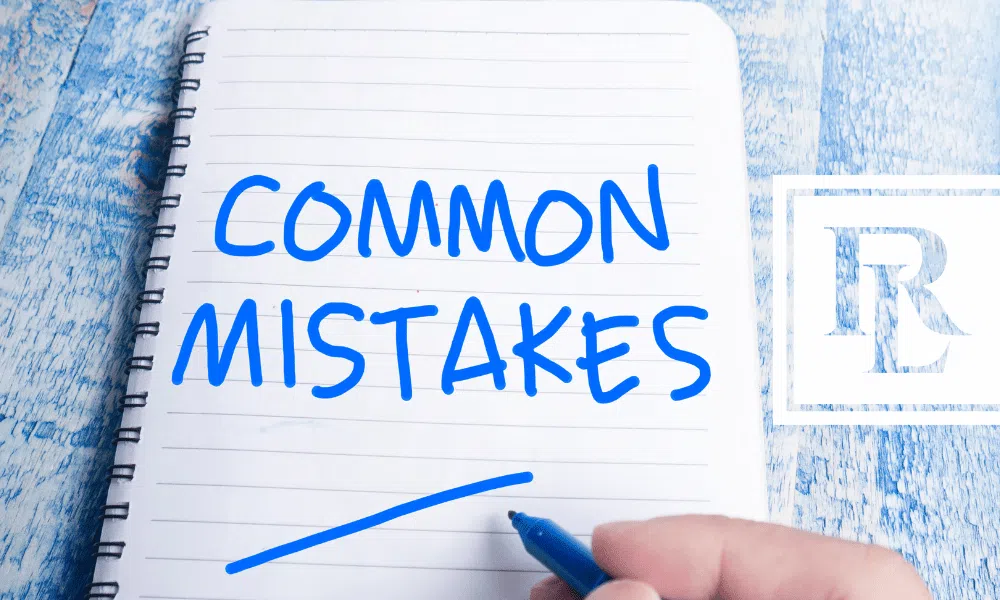If you have been injured on the job in Massachusetts or Rhode Island, you may already be feeling overwhelmed. Medical bills, missed paychecks, and the stress of not knowing what comes next can take a heavy toll. Filing a workers’ compensation claim should help provide financial relief and medical coverage, but the process is not always straightforward. Small mistakes can lead to delays, reduced benefits, or even a denial of your claim.
At Rob Levine Law, we understand how difficult this time can be. To help you avoid common pitfalls, we have outlined some of the biggest mistakes injured workers make and how you can protect yourself.
Waiting Too Long to Report Your Injury
One of the most important steps after a workplace injury is reporting it right away, as failing to do so can affect your eligibility for workers’ compensation benefits. In Massachusetts, while you can report later, it becomes harder to prove your case. You must report it before the 4-year statute of limitations expires to maintain eligibility for benefits. In Rhode Island, you must notify your employer immediately or as soon as practical. Delaying or failing to notify your employer could result in your claim being denied or benefits being reduced.
Failing to report promptly or not providing proper documentation can give your employer or their insurance company reason to question whether your injury is work-related. Always notify your supervisor as soon as possible, preferably in writing, and keep a copy for your records. This will ensure you have proper documentation should any issues arise later in the process.
Not Seeking Medical Care Right Away
Even if you think your injury is minor, delaying treatment can hurt both your health and your claim. Insurance companies often argue that if you did not see a doctor right away, the injury must not have been serious or related to work.
Make sure to:
- Visit a medical provider promptly
- Follow all recommended treatments
- Keep copies of medical records and receipts
This not only strengthens your claim but also protects your health.
Failing to Provide Complete Information
Workers’ compensation paperwork can be detailed and sometimes confusing, but accuracy is critical. If you leave out important facts or provide inconsistent information, the insurance company may use this as a reason to delay or deny your claim. For example, not explaining how your injury happened or failing to mention all the body parts affected can raise questions about the seriousness or source of the injury.
It is also important to be consistent between your injury report, medical records, and official claim forms. If your employer’s report says you hurt your back, but your medical notes only mention your leg, the insurance adjuster might argue that your claim does not match.
To avoid problems:
- Write down the details of your injury as soon as possible while they are fresh in your memory.
- Make sure your medical provider knows that your injury is work-related.
- Double-check all forms before submitting them, and keep copies for your records.
If you are uncertain about what information is required, asking questions and seeking legal guidance early can prevent small errors from turning into big setbacks.
Returning to Work Too Soon
After an injury, many workers feel pressure to get back on the job quickly, either because they need the paycheck or because they do not want to let their employer down. However, returning to work before you are fully healed can make your situation worse. Pushing your body too soon can lead to re-injury, chronic pain, or a longer recovery.
From a legal standpoint, going back before your doctor approves can also weaken your claim. If you return early and then struggle to perform your duties, the insurance company may argue that you are capable of working and therefore do not need additional benefits. This can reduce the amount of wage replacement or medical coverage you receive.
Instead, listen carefully to your medical provider. Only return to work when you have medical clearance, and if your doctor recommends light duty or modified tasks, be sure that your employer follows through with those accommodations. Protecting your health should always come first, and taking the time to recover fully can strengthen your long-term case.
Handling the Process Alone
The workers’ compensation system can be confusing, especially when you are already coping with an injury. Employers and insurers often have teams of lawyers and adjusters working on their side. Without experienced help, it is easy to make mistakes that weaken your case.
At Rob Levine Law, we have helped injured workers in Massachusetts and Rhode Island navigate this process with care and confidence. Our team works to ensure your claim is filed correctly, deadlines are met, and your rights are protected.
Moving Forward With Support
Filing a workers’ compensation claim can feel daunting, but avoiding these mistakes puts you on stronger footing. If you have been hurt at work, you do not have to go through this alone. Rob Levine Law is here to provide the guidance and support you need during this difficult time.
Call (800) 742-3920 or reach out online. Let our workers’ compensation lawyers help you take the next step toward protecting your health, your benefits, and your future.





